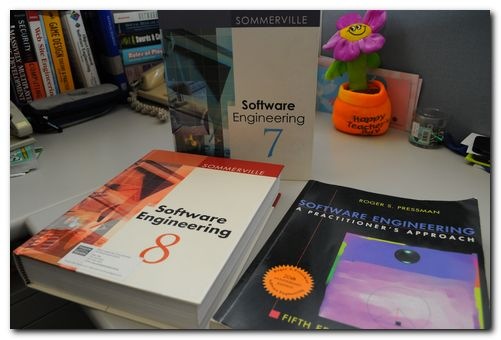 Just a couple of weeks ago, my Software Engineering students were right thick in their last week of final assessments for my subject. When I ran into them while walking to the faculty cafeteria for lunch, they all went into skit routine, tearing their hair, and hollering in mock agony “STRESS!!!!!”
Just a couple of weeks ago, my Software Engineering students were right thick in their last week of final assessments for my subject. When I ran into them while walking to the faculty cafeteria for lunch, they all went into skit routine, tearing their hair, and hollering in mock agony “STRESS!!!!!”
Just to clarify; they were a great bunch to teach, and several of them were some of the highest performing students for their cohort in terms of their progressive results so far. We all had a good laugh, and proceeded on our separate ways.
It’s interesting to reflect back on what my undergraduate days were like in terms of studies some 16-17 years ago. I don’t think I ever actually felt stressed or pressurized in my studies. OK, so I wasn’t so great a student as I’ve already blogged about here. I was pulling all nighters running around with my hostel choir, the debating teams, in the student union and JCRCs that I was routinely sleeping at 4:30 am every morning. At 8 am, I’d wake up, and without washing up, run straight for the first of my four hour lecture stretch every morning.
So, essentially, I was too busy with all the non-academic, extra-curricular activities to be worried about results. Oh, I studied when I had to, i.e. usually mugging just a few weeks before the semester exam period, and I got through my first two years with mediocre results. A few B’s, a lot of C’s, and a few D’s.
When I was in my final year in NTU, I was gradually discarding my ECAs (eventually only retaining debating), so I had a lot more time to hit the books. I kept a meticulous study routine, and started revision 4 months before the final exams began. I took all the lecture notes and reference books, summarized them, then re-summarized those summaries, and wrote out my own volumes of test paper questions for me to get used to answering questions.
The fruits of my labor? One ‘A’, several ‘C’s, and a supplementary paper. I was pretty upset. I’d spent a god awful amount of time of time studying and yet all I got were still average results, with a supp paper to boot.
It was only during my first post-grad that I realized that those studying techniques while I’m certain work for some people, just wouldn’t work for me. So, for my Master degree, I spent a small amount of time casually reading the materials, identifying issues as opposed to facts, and spent far more time thinking around those issues.
My exam papers in this degree were typically 3 to 5 hour essay papers. As each paper started, I wrote like no tomorrow, routinely hitting 35 page essays in 4 hours each time. The results? Straight distinctions for every one of the degree’s 12 subjects, graduated with distinction, and that opened the door for the Ph.D.
More in the next post!
Recent comments